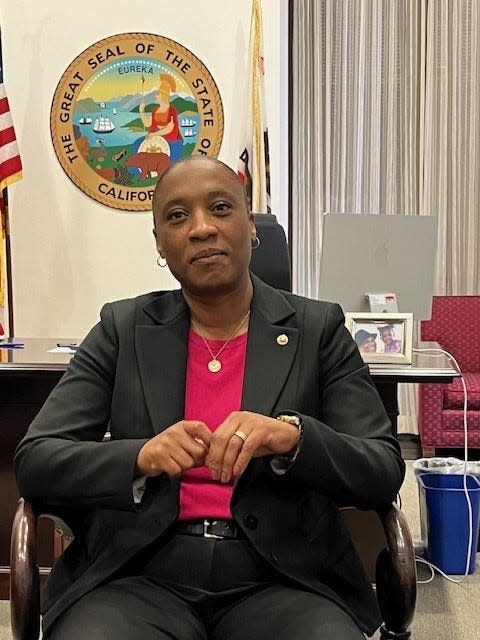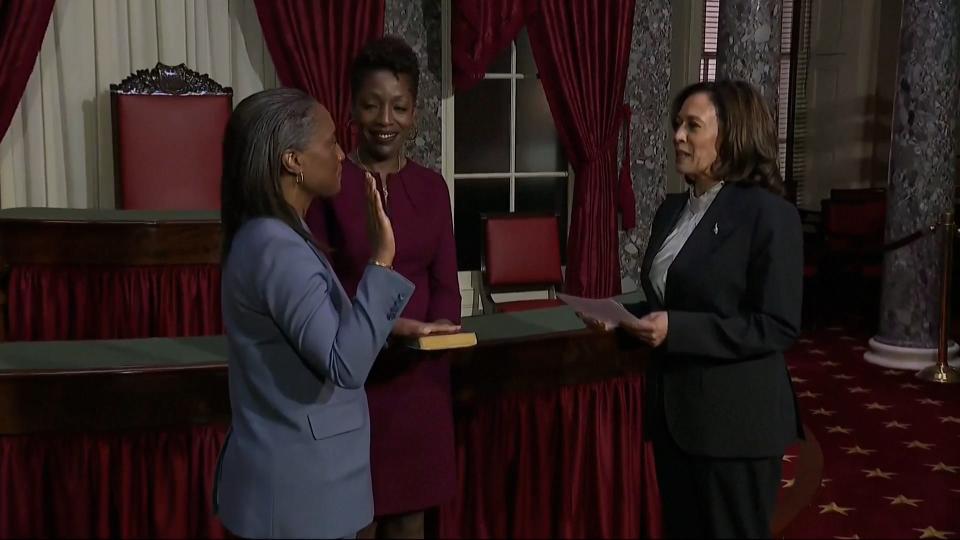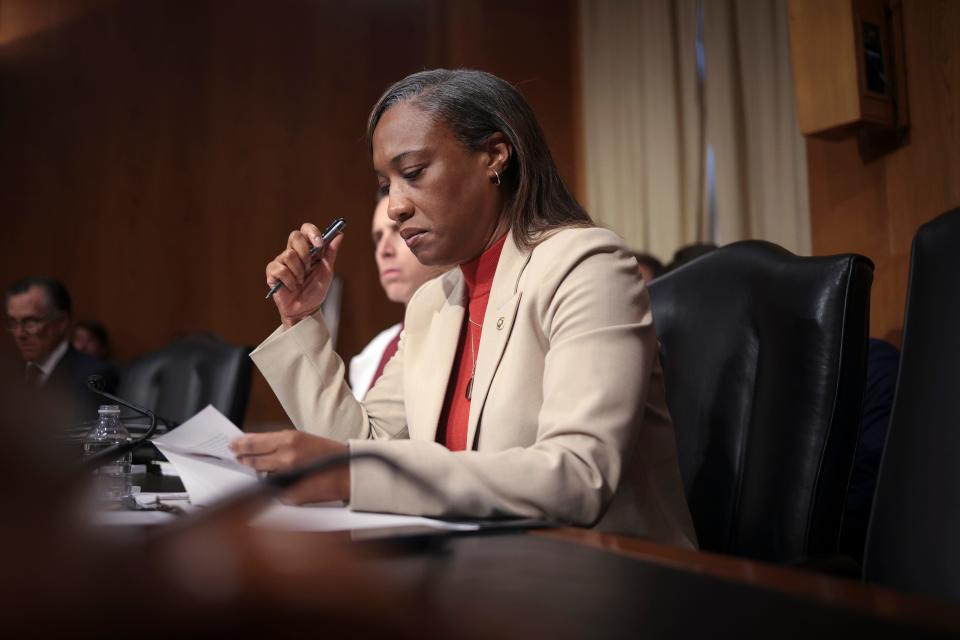The lone Black woman senator shares the 'incredible opportunity, responsibility and burden'
WASHINGTON ? California Sen. Laphonza Butler is the lone African American woman in the Senate and only the third Black woman to ever serve in the chamber.
Six months into the job, the Democratic senator talked to USA TODAY about what she called the “incredible opportunity, responsibility and burden’’ of that role.
“The opportunity to be the only Black woman gives me the space and place to raise issues that I know Black women like my mama would have faced all her life and to give them voice on issues that truly do matter,’’ Butler said in a recent interview in her Senate office.
Butler, 44, was appointed by California Gov. Gavin Newsom last fall to fill the seat of the late Democratic Sen. Dianne Feinstein. Butler opted not to run for the seat in 2024.

The former labor organizer was the first woman of color to head EMILY's List, an organization that supports Democratic, pro-abortion rights women candidates. The first Black lesbian to openly serve in Congress, Butler serves on several committees, including Judiciary where she is chair of its subcommittee on the Constitution, which has jurisdiction over civil rights among other issues.
During her short stint in the Senate, Butler has championed federal voting rights and pushed for more support for historically Black colleges. Butler held her first field hearing on voting rights last month in Montgomery, Alabama.
This interview with Butler has been shortened for clarity and brevity.
How has it been being the only African American woman in the Senate at this time?
Answer: I say often I don't know how to be anything else but Black and a woman. That is an experience and perspective that I bring. We are uniquely impacted by so many issues that are discussed in this body. Everybody expects everything of the Black woman whether we are carrying the clipboard, or answering the phone, or taking care of our neighbor, or leading the board meeting or running the company. Everything is expected of the Black woman and so it is an incredible responsibility that I take seriously.
You stay awake at night knowing that there are millions of people counting on you to raise your voice to take on every battle to fight every fight.

Does the burden feel different than in other roles or jobs you've had?
I've tried to always carry the awareness of what my presence means as the only into every space that I bring those identities. Our world is in a very perilous place. Our country is at very challenging crossroads. And so, in that way, it feels immensely different because of the consequences, the stakes, the future of our democracy in so many ways, the future of work for so many young people. I'm the only Black woman, but I also am one of the youngest and one of the only ones who has a school-aged child. Lots of onlys live in this dream.
There aren't many Black women you can call and ask 'How was it when you were here?' Who do you call for advice or comfort?
There are two Black women who've ever done this before me. Sen. Carol Moseley Braun and Vice President Kamala Harris, who swore me in and who I've known for more than a decade. I have spoken to the vice president and gotten her advice on occasion, particularly as I was just getting started in the space and finding my way. Sen. Moseley Braun and I have done some virtual events…We actually have not connected (in person.) It’s one of the things that's on my list to do.

Do you lean on members of the Congressional Black Caucus?
I’ve talked to Sens. (Cory) Booker and (Raphael) Warnock a great deal. There are several members in the House who have given me (advice about) their experience, which has been very, very helpful.
What about women in the Senate?
Oh, for sure. I found a lot of camaraderie and support amongst all of the Democratic women and some of the Republican women. (Washington) Sen. Patty Murray has just been as much of a Sherpa as you could imagine. (Minnesota) Sen. Tina Smith has just been an outstanding guidepost and (Nevada) Sen. (Catherine) Cortez Masto is great. Peter Welch from Vermont was the most junior (senator) before I became the most junior and so we find ourselves sitting next to each other in committee talking about what it's like to be No. 100.
Wearing your former hat as president of Emily's List, what do you think of the increasing number of women of color running for Congress and the support they've received?
We've seen the fall of Black women who are deeply prepared. I think about (former) state Supreme Court) Chief Justice Cheri Beasley just last cycle in North Carolina who was prepared, qualified, had run statewide before and she didn't get the national investment to her race, never got the national attention.
I hope the lesson that we have learned as a (Democratic) party is that Black women are no longer going to just be the folks who answer the phones or who knock on the doors or who carry the clipboard. They are now going to be in perpetuity the candidates who are running for office.
I think they are going to be rightfully demanding more of the Democratic Party in particular but whatever party they run as a part of, because we have to be seen and we have to be at the table. What I think it means is: Get used to it, because Black women are here and they are here to be leaders.
This article originally appeared on USA TODAY: Laphonza Butler, the only Black woman in the Senate, on her new job
